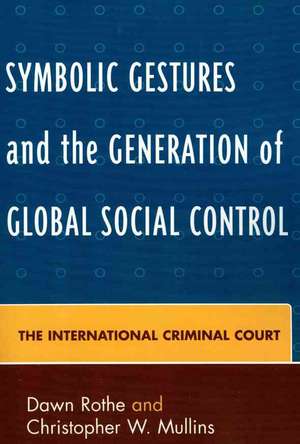Symbolic Gestures and the Generation of Global Social Control: Critical Perspectives on Crime and Inequality
Autor Dawn L. Rothe, Christopher W. Mullinsen Limba Engleză Paperback – 15 sep 2006
| Toate formatele și edițiile | Preț | Express |
|---|---|---|
| Paperback (1) | 419.58 lei 6-8 săpt. | |
| Rowman & Littlefield – 15 sep 2006 | 419.58 lei 6-8 săpt. | |
| Hardback (1) | 686.27 lei 6-8 săpt. | |
| Rowman & Littlefield – 24 aug 2006 | 686.27 lei 6-8 săpt. |
Preț: 419.58 lei
Nou
Puncte Express: 629
Preț estimativ în valută:
80.28€ • 83.82$ • 66.45£
80.28€ • 83.82$ • 66.45£
Carte tipărită la comandă
Livrare economică 04-18 aprilie
Preluare comenzi: 021 569.72.76
Specificații
ISBN-13: 9780739111864
ISBN-10: 0739111868
Pagini: 229
Dimensiuni: 154 x 231 x 19 mm
Greutate: 0.38 kg
Editura: Rowman & Littlefield
Seria Critical Perspectives on Crime and Inequality
ISBN-10: 0739111868
Pagini: 229
Dimensiuni: 154 x 231 x 19 mm
Greutate: 0.38 kg
Editura: Rowman & Littlefield
Seria Critical Perspectives on Crime and Inequality
Notă biografică
Descriere
This book explores the historical origins of the court and provides and examination of the basic structure and functioning of the court. Rothe and Mullins offer a detailed critique of procedural, conceptual, and practical elements of the ICC through the lens of critical criminological theory and research and identify several problems with the design and proposed implementation of the ICC.







